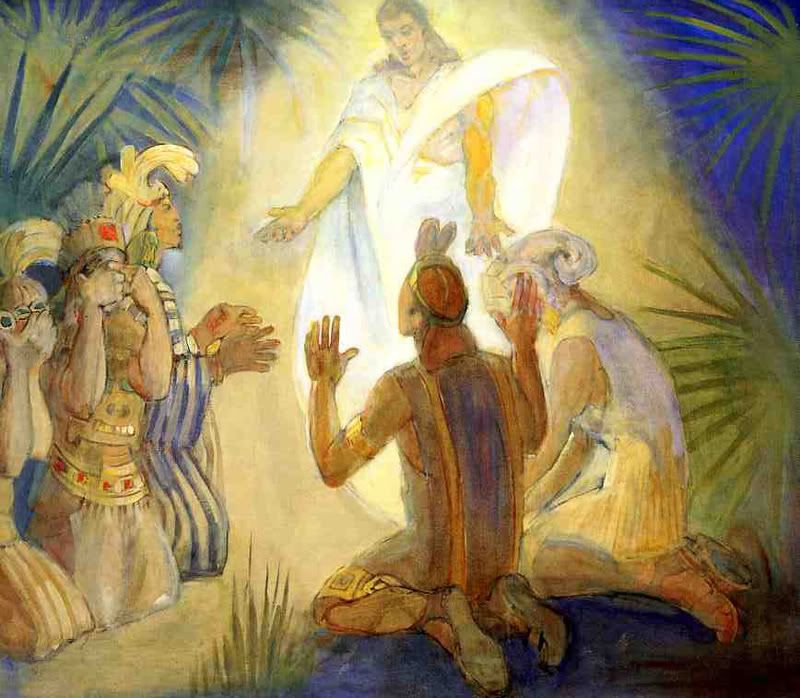Ask what.
Not why.
I find myself asking too often, Why? Why am I here? Why is this happening now?
Talking to my mom recently, she related a story to me and I realized I needed to be asking What?
What am I supposed to be doing here? What am I supposed to be doing now? What changes need to be made?
God wants our wills . . . so I guess I could try a little harder to be doing what he knows is best for me, and asking what actions that requires of me.
Friday, June 22, 2012
Friday, June 15, 2012
timing.
I'm unsure how uplifting this post will be, but I have two thoughts:
1. It's always been extremely interesting to me how God uses different things to send a message. It can be a song, a movie, something someone mentions in passing or even a fortune cookie.
2. Timing is probably one of the most important things to understand when trying to align our will with God's. Understanding that the timing is crucial can help us to be patient as well as understand God's greater plan.
So what I'm trying to say is that this insight came from listening to a new song by Motion City Soundtrack. I was really into them in high school, but kind of moved on to other music . . . I can't even remembered how I ended up finding this track or listening to it . . . The song has some interesting points and truths, though MCS is definitely not the most religious band you'll find.
The message I got out of it may not be their intended point, but that's one of the great things about songs and literature; it doesn't matter. Here's the song with lyrics:
It's a matter of timing. God takes us to where we are and where we need to be with his timing. Understanding his timing is key to being happy.
Be patient. Be diligent.
1. It's always been extremely interesting to me how God uses different things to send a message. It can be a song, a movie, something someone mentions in passing or even a fortune cookie.
2. Timing is probably one of the most important things to understand when trying to align our will with God's. Understanding that the timing is crucial can help us to be patient as well as understand God's greater plan.
So what I'm trying to say is that this insight came from listening to a new song by Motion City Soundtrack. I was really into them in high school, but kind of moved on to other music . . . I can't even remembered how I ended up finding this track or listening to it . . . The song has some interesting points and truths, though MCS is definitely not the most religious band you'll find.
The message I got out of it may not be their intended point, but that's one of the great things about songs and literature; it doesn't matter. Here's the song with lyrics:
It's a matter of timing. God takes us to where we are and where we need to be with his timing. Understanding his timing is key to being happy.
Be patient. Be diligent.
Sunday, June 10, 2012
lessons from the war chapters.
Sometimes people struggle with why there are so many chapters that go into pretty extensive detail about the wars fought between the people of the Book of Mormon. In my recent reading in Alma I've started reading these chapters.
There are many lessons that we can learn from these war chapters.
Here are a few that I learned this past week:
We must counsel with the Lord and seek his help, while doing every logical thing we know how.
In Alma 43, when the Lamanites (badies) saw the armor and preparation of the Nephites (goodies) they hauled buns out of there and decided to attack in a different place. Moroni wasn't sure where they'd go, but knew they had to head them off. So he does two things. 1. He sends spies and leaves part of the army to defend the first area, while mobilizing the rest of them and 2. He asks the prophet to ask God where the Lamanites were going to attack. At this time the Nephites were following God's commandments and the Lamanites were not.
The prophet tells them where to send their armies and they are able to defend and defeat the invading army.
God always wants to help us, and is willing to when we ask for his help. He also expects us to use our own brains and do everything we can. This could include making a list of pros and cons of a decision, or pursuing multiple opportunities, then God can direct us to what is best for us.
Those that have faith in God are able to see his delivering hand.
In Alma 44 Moroni, the leader of the Nephites is able to pin down the leader of the Lamanites. Moroni says that it is because of their faithfulness to God that they have been able to defeat the Lamanites. This shouldn't be seen as religious arrogance. Moroni sees it as a fulfillment of the promise that if they were righteous, God would protect and deliver them. Zarahemnah (bad guy) says it's because of their armor and superior weapons.
Well, Moroni is a pretty righteous guy and he did all that he could to prepare his people. Then, God strengthened them to be able to preserve their liberty.
What others may see as coincidence, or our own talent or wisdom, those that are faithful can see God's aid and hand in deliverance.
There is always a lesson that we can learn. Even in, and sometimes especially during our trials.
There are many lessons that we can learn from these war chapters.
Here are a few that I learned this past week:
We must counsel with the Lord and seek his help, while doing every logical thing we know how.
In Alma 43, when the Lamanites (badies) saw the armor and preparation of the Nephites (goodies) they hauled buns out of there and decided to attack in a different place. Moroni wasn't sure where they'd go, but knew they had to head them off. So he does two things. 1. He sends spies and leaves part of the army to defend the first area, while mobilizing the rest of them and 2. He asks the prophet to ask God where the Lamanites were going to attack. At this time the Nephites were following God's commandments and the Lamanites were not.
The prophet tells them where to send their armies and they are able to defend and defeat the invading army.
God always wants to help us, and is willing to when we ask for his help. He also expects us to use our own brains and do everything we can. This could include making a list of pros and cons of a decision, or pursuing multiple opportunities, then God can direct us to what is best for us.
Those that have faith in God are able to see his delivering hand.
In Alma 44 Moroni, the leader of the Nephites is able to pin down the leader of the Lamanites. Moroni says that it is because of their faithfulness to God that they have been able to defeat the Lamanites. This shouldn't be seen as religious arrogance. Moroni sees it as a fulfillment of the promise that if they were righteous, God would protect and deliver them. Zarahemnah (bad guy) says it's because of their armor and superior weapons.
Well, Moroni is a pretty righteous guy and he did all that he could to prepare his people. Then, God strengthened them to be able to preserve their liberty.
What others may see as coincidence, or our own talent or wisdom, those that are faithful can see God's aid and hand in deliverance.
There is always a lesson that we can learn. Even in, and sometimes especially during our trials.
Sunday, June 3, 2012
chiasmus.
Chiasmus is a rhetorical tool where words, grammatical constructions, or concepts are repeated in reverse order, in the same or a modified form.
They appear in Latin and Greek texts, Shakespeare and the Bible to name a few.
I know that the Book of Mormon has a handful of them at least, which should be some sort of evidence that it wasn't made up by Joseph Smith on the spot.
I was reading in Alma chapter 36 this past week and I noticed a chiasmus (I'm sure this had been pointed out to me before, but I was stoked to have noticed myself).
Alma is leaving his son Helaman with counsel before he dies. He starts out by telling him that he will be blessed by God to the degree of his obedience to God's commandments. Then he tells him to always remember how their ancestors were delivered from the Egyptians by the hand of God.
He then talks about the need for everyone to be born of the Spirit; essentially, to be reborn.
Then he talks about how he received forgiveness from God through Jesus Christ after being called to repentance by an angel.
He closes by talking about being spiritually reborn, remembering how their ancestors were led away from the Babylonians and came to the Americas, and that he would be blessed according to his degree of obedience.
Hopefully you're seeing this inverted order of counsel.
Most importantly I hope you're seeing what the central point was; that it is only through Jesus Christ that we can be forgiven and be saved.
The Book of Mormon teaches the doctrines of the Atonement of Jesus Christ, and it is through the Book of Mormon that I have received a testimony by the Holy Spirit that Jesus is my savior.
Jesus Christ is the way to forgiveness and the Book of Mormon has taught me how I can apply his sacrifice in my own life.
Subscribe to:
Posts (Atom)


